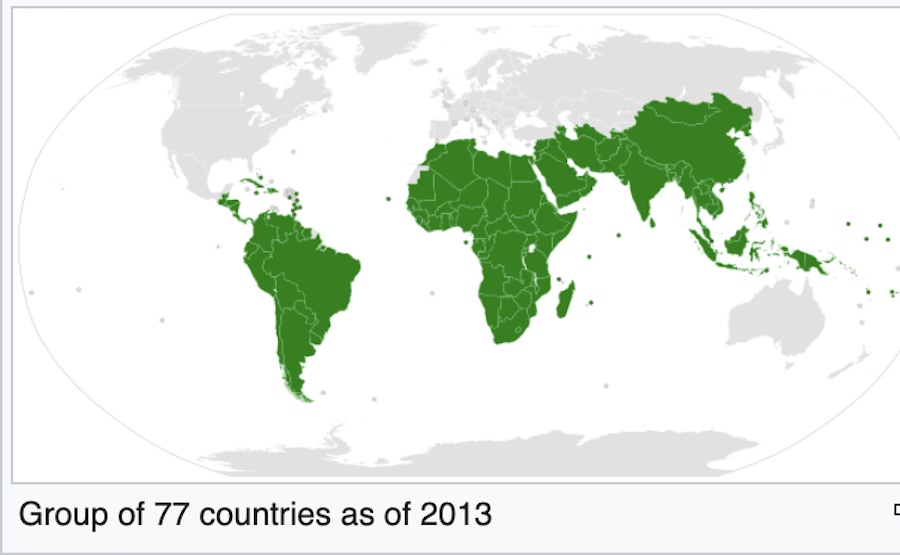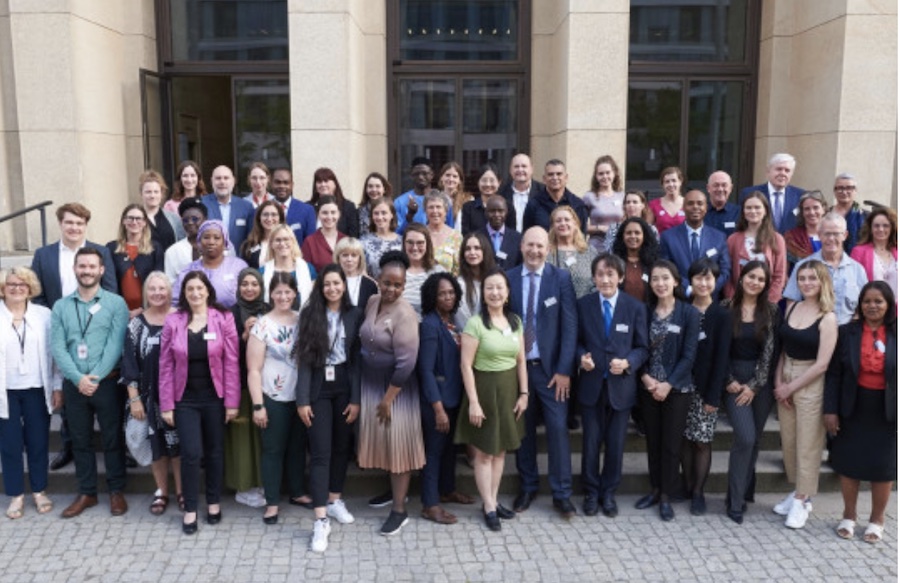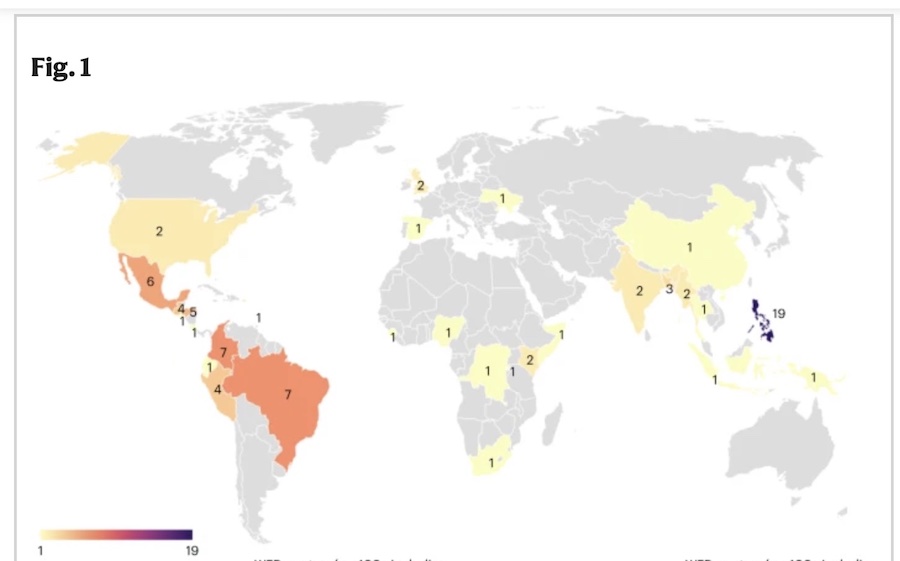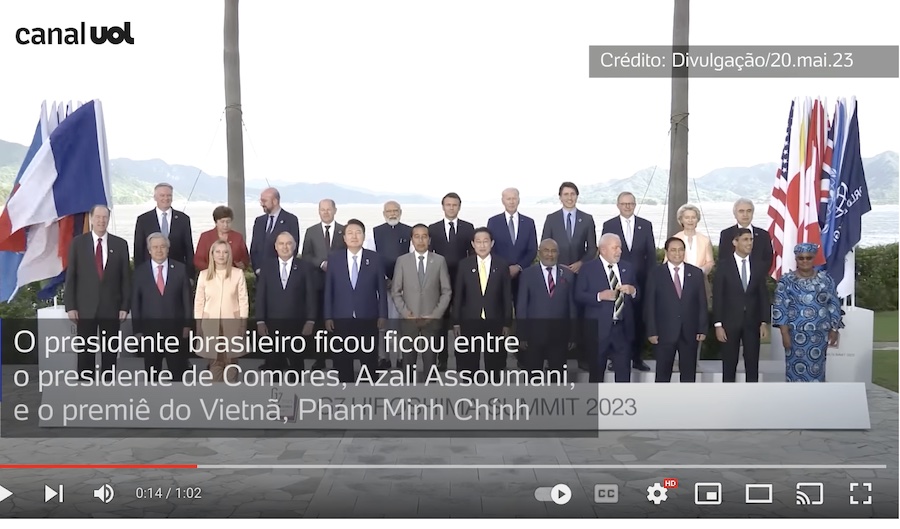. . SUSTAINABLE DEVELOPMENT . .
A statement from The Group of 77 at the United Nations
Statement on behalf of the Group of 77 and China by H.E. Mr. Alejandro Gil Fernández, Deputy Prime Minister and Minister of Economy and Planning of the Republic of Cuba, at the general debate of the high-level segment of the High-level Political Forum on Sustainable Development under the auspices of ECOSOC (New York, 17 July 2023)

Image from Wikipedia
Her Excellency Ms. Lachezara Stoeva, President of ECOSOC,
I have the honor to deliver this statement on behalf of the G77 and China.
As we approach the midpoint of the implementation of the 2030 Agenda for Sustainable Development, we have witnessed how many are still lagging behind.
We meet today at a time of extremely critical juncture, in which developing countries face multiple challenges, particularly those concerning economic and social recovery from the aftermath of the COVID-19 pandemic, enormous financial and debt difficulties, rising food prices, escalating climate emergency and an unbalanced economic order that perpetuates inequalities and poverty.
Humanity has before it a thick and complex set of documents, based on basic principles, which in theory are the basis for our sustainable development. However, the progress achieved is still insufficient for the realities of the poorest and most vulnerable. Let us not forget that poverty eradication is the greatest global challenge and an indispensable requirement for sustainable development.
The increasing global challenges, including the negative effects of climate change that threatens the very survival of many developing countries especially of Small Island developing states and deepen the vulnerability of all, the rising global interest rates, tightened financial conditions, high cost of debt and risks of debt distress, have deeply impacted economies in the Global South, especially in low and middle income countries. In this regard, the G77 and China expects to have a meaningful debate on the centrality of development finance to overcome those challenges.
Concrete actions by developed countries to deliver on previous commitments, as well as on the reform of the international financial architecture are essential for the transformation we are advocating.
Madam President,
It has been almost a decade since the adoption of the 2030 Agenda for Sustainable Development and the Addis Ababa Action Agenda. Multiple pledges have been made since then.
Contrary to the notion of progress, we find ourselves in a situation where our people is even more in need now than years before. The IMF is forecasting that a third of the global economy will be in recession in 2023. For the first time, UNDP has found that human development is falling in nine out of 10 countries.
The high cost of borrowing prevents the capacity of developing countries to invest in the SDGs and it also raises the risk of debt default. For developing countries in the Global South interest rates can be eight times higher than those in developed countries, as highlighted by the Secretary General, who has pointed out as well that today 25 developing economies are spending over 20 per cent of government revenues solely on servicing debt.
(article continued in right column)
Sustainable Development Summits of States, What are the results?
(Article continued from the left column)
Madam President,
Since its inception, the G77 and China has been advocating for a new international economic order. Now it´s more evident than ever that these transformations cannot wait any longer. The UN Secretary General recently recognized that the Global Financial System is biased, morally bankrupt and skewed to benefit wealthy countries. This is no longer a plea only from developing countries.
The reform of the international financial architecture, especially of IMF and the World Bank, cannot continue to wait. We need to strengthen the participation of developing countries in international economic decision-making, norm-setting and global economic governance, so as in order to adapt to changes in the global economy. We look forward to fulfill the commitment of IMF to revisiting the adequacy of quotas and continuing the process of governance reform under the sixteenth general review of quotas and to conduct the shareholding review of the World Bank.
We welcome the UN Secretary-General’s proposal for an “SDG Stimulus” for developing countries, in particular the most in need and distressed countries, which aims at massively scaling up affordable long-term financing for development and aligning financing flows with the SDGs. We call upon the international community to follow up on the SG’s proposal. We urge developed countries to fulfill their unmet ODA commitments to developing countries to achieve the target of 0.7 % of gross national income and 0.15 to 0.20 % of ODA to the least developed countries.
We urge the initiation of an United Nations intergovernmental process to establish measures that go beyond GDP in order to have a more inclusive approach to international cooperation and financing for development.
The Group emphasizes the need for special and differential treatment for developing countries in harnessing the developmental benefit of international trade and the importance of a multilateral trading system that relies on universal, rule-based, open, transparent, inclusive and non-discriminatory rules as embodied in the WTO agreements.
In this connection, the Group remains deeply concerned and rejects the increasing trend by developed countries to impose unilateral and protectionist measures that undermine the multilateral trading system and would constitute a means of arbitrary or unjustifiable discrimination between countries or a disguised restriction on international trade, such as unilateral and discriminatory border adjustment mechanisms and taxes, negatively impacting the access of developing countries’ exports to the global markets.
The climate change agenda must be fully implemented in accordance with the UNFCCC and its Paris Agreement and upholding the principle of equity and common but differentiated responsibilities and respective capabilities. In this regard, it is critical to increase ambition on mitigation, adaptation and means of implementation, and materialize the provision and mobilization of resources by developed countries to tackle climate change. We are deeply disappointed that the goal to mobilize 100 billion dollars by developed countries per year up to 2020 was never met and we strongly call developed countries to fulfill this pledge. We also urge the full operationalization of the loss and damage fund by COP28.
It is critical an urgent promotion of technology transfer and capacity building as well as technological and scientific cooperation from developed to developing countries in order to foster sustainable development in its three dimensions and the full implementation of the 2030 Agenda.
Finally, we emphasize that as stated in the 2030 Agenda, States are strongly urged to refrain from promulgating and applying any unilateral economic, financial or trade measures not in accordance with international law and the Charter of the United Nations that impede the full achievement of economic and social development, particularly in developing countries.
Madam President,
The actions just mentioned have been enunciated in several occasions by the leaders of the Global South. The lack of progress must not be attributed to a lack of solutions. Actions are there. What it is required urgently is political will to implement what we all know is needed to overcome one of the most complex crises humanity has seen in the modern history.
We, as leaders from the developing world, have the responsibility to come all together and claim with a united voice the changes needed to ensure a sustainable future for the current and coming generations.
I thank you.








